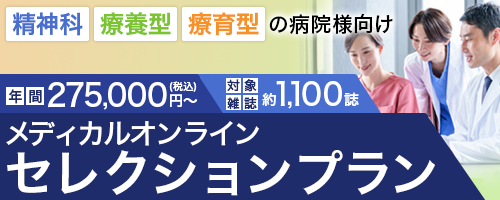アブストラクト
Japanese
| Title | 回復期リハビリテーション病棟脳卒中患者における, 抑うつ症状と意味のある作業の満足度, 自己効力感との関連 |
|---|---|
| Subtitle | 原著論文 |
| Authors | 本間健太*1, 穂満稔里*2, 外川佑*3 |
| Authors (kana) | |
| Organization | *1医療法人新成医会総合リハビリテーションセンター・みどり病院 (前所属 ; 新潟医療福祉大学大学院保健学専攻作業療法学分野修士課程), *2医療法人新成医会総合リハビリテーションセンター・みどり病院, *3山形県立保健医療大学保健医療学部作業療法学科 (前所属 ; 新潟医療福祉大学リハビリテーション学部作業療法学科) |
| Journal | 作業療法 |
| Volume | 42 |
| Number | 4 |
| Page | 460-468 |
| Year/Month | 2023 / 8 |
| Article | 原著 |
| Publisher | 日本作業療法士協会 |
| Abstract | 要旨:本研究では, 回復期リハビリテーション病棟(以下, 回復期病棟)入院中の脳卒中後うつ症状(以下, PSD)患者において, 意味のある作業の満足度が自己効力感の変化量を媒介し, うつ症状を軽減するかを調査した. 72名の対象者の入院時と退院時間における, うつ症状, 意味のある作業の満足度, 自己効力感のスコアの変化量について媒介分析を行った. その結果, 意味のある作業の満足度は, 自己効力感を媒介することなく, うつ症状に有意な直接効果を示した(β=-2.5, 95% CI[-4.2, -0.86], p=0.004). この結果から, 意味のある作業の満足度は, 回復期病棟におけるPSDの軽減に寄与する可能性が示唆された. |
| Practice | 医療技術 |
| Keywords | 脳卒中, 抑うつ, 意味のある作業, 自己効力感, 回復期リハビリテーション病棟, Stroke, Depression, Meaningful occupation, Self-efficacy, Recovery rehabilitation ward |
English
| Title | Relationship between depressive symptoms, satisfaction with meaningful occupation, and self-efficacy for stroke patients in the recovery rehabilitation phase |
|---|---|
| Subtitle | ORIGINAL ARTICLES |
| Authors | Kenta Homma*1, Minori Homitsu*2, Tasuku Sotokawa*3 |
| Authors (kana) | |
| Organization | *1Comprehensive Rehabilitation Center Midori Hospital (Former affiliation ; Master's Course, Field of Occupational Therapy, Graduate School of Health Sciences, Niigata University of Health and Welfare), *2Comprehensive Rehabilitation Center Midori Hospital, *3Department of Occupational Therapy, Faculty of Health Science, Yamagata Prefectural University of Health Sciences (Former affiliation ; Department of Occupational Therapy, Faculty of Rehabilitation, Niigata University of Health and Welfare) |
| Journal | JAPANESE OCCUPATIONAL THERAPY RESEARCH |
| Volume | 42 |
| Number | 4 |
| Page | 460-468 |
| Year/Month | 2023 / 8 |
| Article | Original article |
| Publisher | JAPANESE ASSOCIATION OF OCCUPATIONAL THERAPISTS |
| Abstract | The aim of this study was to verify whether satisfaction with meaningful occupation mediates self-efficacy and reduces depressive symptoms for post-stroke depression (PSD) patients in the recovery rehabilitation phase. We used a mediation analysis of the change in depressive symptoms, satisfaction with meaningful occupation, and self-efficacy scores between admission and discharge in 72 patients. The results showed that satisfaction with meaningful occupation had a significant direct effect on depressive symptoms without mediating self-efficacy (β=-2.5, 95% CI [-4.2, -0.86], p=0.004). The results suggest that satisfaction with meaningful occupation may contribute to the reduction of PSD in the recovery rehabilitation phase. |
| Practice | Medical technology |
| Keywords | Stroke, Depression, Meaningful occupation, Self-efficacy, Recovery rehabilitation ward |
- 全文ダウンロード: 従量制、基本料金制の方共に770円(税込) です。
参考文献
- 1) 土屋謙仕,藤田貴昭,佐藤大介,緑川学,牧山康志,他:脳卒中後抑うつ状態が回復期リハビリテーション病棟患者のADLに与える影響.OTジャーナル 48(10):1072-1077, 2014.
- 2) Blochl M, Meissner S, Nestler S: Does depression after stroke negatively influence physical disability? A systematic review and meta-analysis of longitudinal studies. J Affect Disord 247(15): 45-56, 2019.
- 3) Ayerbe L, Ayis S, Crichton S, Wolfe CDA, Rudd AG: The long-term outcomes of depression up to 10 years after stroke; The South London Stroke Register. J Neurol Neurosurg Psychiatry 85(5): 514-521, 2014.
- 4) Ayerbe L, Ayis S, Wolfe CDA, Rudd AG: Natural history, predictors and outcomes of depression after stroke: systematic review and meta-analysis. Br J Psychiatry 202(1): 14-21, 2013.
- 5) Hackett ML, Pickles K: Part I: frequency of depression after stroke: an updated systematic review and meta-analysis of observational studies. Int J Stroke 9(8): 1017-1025, 2014.
残りの30件を表示する
- 6) Hackett ML, Yapa C, Parag V, Anderson CS: Frequency of depression after stroke: a systematic review of observational studies. Stroke 36(6): 1330-1340, 2005.
- 7) Werheid K: A two-phase pathogenetic model of depression after stroke. Gerontology 62(1): 33-39, 2015.
- 8) 日本脳卒中学会 脳卒中ガイドライン委員会:脳卒中治療ガイドライン2021.協和企画, 2021, pp.285-287.
- 9) Medeiros GC, Roy D, Kontos N, Beach SR: Post-stroke depression: A 2020 updated review. Gen Hosp Psychiatry 66: 70-80, 2020.
- 10) Robinson-Smith G, Johnston MV, Allen J: Self-Care Self-Efficacy, Quality of Life, and Depression After Stroke. Arch Phys Med Rehabil 81(4): 460-464, 2000.
- 11) Volz M, Mobus J, Letsch C, Werheid K: The influence of early depressive symptoms, social support and decreasing self-efficacy on depression 6 months post-stroke. J Affect Disord 206: 252-255, 2016.
- 12) Tielemans NS, Schepers VP, Visser-Meily JM, Post MW, van Heugten CM: Associations of Proactive Coping and Self-Efficacy with Psychosocial Outcomes in Individuals after Stroke. Arch Phys Med Rehabil 96(8): 1484-1491, 2015.
- 13) Bandura A: Self-efficacy: Toward a unifying theory of behavioral change. Psychological Review 84(2): 191-215, 1977.
- 14) Grembowski D, Patrick D, Diehr P, Durham M, Beresford S, et al: Self-Efficacy and Health Behavior Among Older Adult. J Health Soc Behav 34(2): 89-104, 1993.
- 15) Schwarzer R, Fuchs R: Changing risk behaviors and adapting health behaviors: The role of self-efficacy beliefs. In Bandura A (ed), Self-efficacy in changing societies, Cambridge University Press, New York, 1995, pp.259-288.
- 16) 日本作業療法士協会:日本作業療法士協会 作業療法の定義. https://www.jaot.or.jp/about/definition/
- 17) 大松慶子,石井良和,山田孝:意味のある作業とは-1995年〜2010年における国内事例報告の質的検討-.日保学誌 18(2):68-80, 2015.
- 18) Graven C, Brock K, Hill KD, Cotton S, Joubert L: First Year After Stroke: An Integrated Approach Focusing on Participation Goals Aiming to Reduce Depressive Symptoms. Stroke 47(11): 2820-2827, 2016.
- 19) 原田佳典,野藤弘幸,鹿田将隆:意味ある作業への従事により,作業参加が改善した脳血管障害発症後に抑うつ状態となった高齢女性.作業行動研究 16(3):210-218, 2012.
- 20) Zung WW: A self-rating depression scale. Arch Gen Psychiatry 12: 63-70, 1965.
- 21) Tomori K, Uezu S, Kinjo S, Ogahara K, Nagatani R, et al: Utilization of the iPad application: Aid for Decision-making in Occupation Choice. Occup Ther Int 19(2): 88-97, 2012.
- 22) Tomori K, Saito Y, Nagayama H, Seshita Y, Ogahara K, et al: Reliability and validity of individualized satisfaction score in aid for decision-making in occupation choice. Disabil Rehabil 35(2): 113-117, 2013.
- 23) 坂野雄二,東條光彦:一般性セルフ・エフィカシー尺度作成の試み.行動療法研究 12(1):73-82, 1986.
- 24) Folstein MF, Folstein SE, McHugh PR: "Mini-mental state". A practical method for grading the cognitive state of patients for the clinician. J Psychiatr Res 12(3): 189-198, 1975.
- 25) Jiang Z, VanderWeele TJ: When is the difference method conservative for assessing mediation? Am J Epidemiol 182(2): 105-108, 2015.
- 26) Maruta M, Makizako H, Ikeda Y, Miyata H, Nakamura A, et al: Associations between Depressive Symptoms and Satisfaction with Meaningful Activities in Community-Dwelling Japanese Older Adults. J Clin Med 9(3): 795, 2020, doi: 10.3390/jcm9030795.
- 27) Egan M, Davis CG, Dubouloz CJ, Kessler D, Kubina LA: Participation and well-being poststroke: evidence of reciprocal effects. Arch Phys Med Rehabil 95(2): 262-268, 2014.
- 28) 諸星成美,京極真:身体障害を有する地域在住高齢者における作業的挑戦,作業参加,作業機能障害,抑うつ,健康関連QOLの構造的関連性の検証.作業療法 38(3):294-303, 2019.
- 29) Levack WMM, Weatherall M, Hay-Smith EJC, Dean SG, McPherson K, et al: Goal setting and strategies to enhance goal pursuit for adults with acquired disability participating in rehabilitation. Cochrane Database Syst Rev 2015(7): CD009727, 2015, doi: 10.1002/14651858.CD009727.pub2.
- 30) Lo SHS, Chau JPC, Lam SKY, Saran R, Choi KC, et al: Association between participation self-efficacy and participation in stroke survivors. BMC Neurol 22(1): 361, 2022, doi: 10.1186/s12883-022-02883-z.
- 31) Volz M, Voelkle MC, Werheid K: General self-efficacy as a driving factor of post-stroke depression: A longitudinal study. Neuropsychol Rehabil 29(9): 1426-1438, 2019.
- 32) 坂野雄二,前田基成・編著:セルフ・エフィカシーの臨床心理学.北大路書房, 2002, pp.50-52.
- 33) American Psychiatric Association(染矢俊幸,神庭重信,尾崎紀夫,三村將,村井俊・訳):DSM-5 精神疾患の分類と診断の手引.高橋三郎,大野裕・監訳,医学書院, 2014, pp.89-93.
- 34) Marin RS: Apathy: a neuropsychiatric syndrome. J Neuropsychiatry Clin Neurosci 3(3): 243-254, 1991.
- 35) Schwartz CE: Applications of response shift theory and methods to participation measurement: a brief history of a young field. Arch Phys Med Rehabil 91(9 Suppl): S38-S43, 2010.



